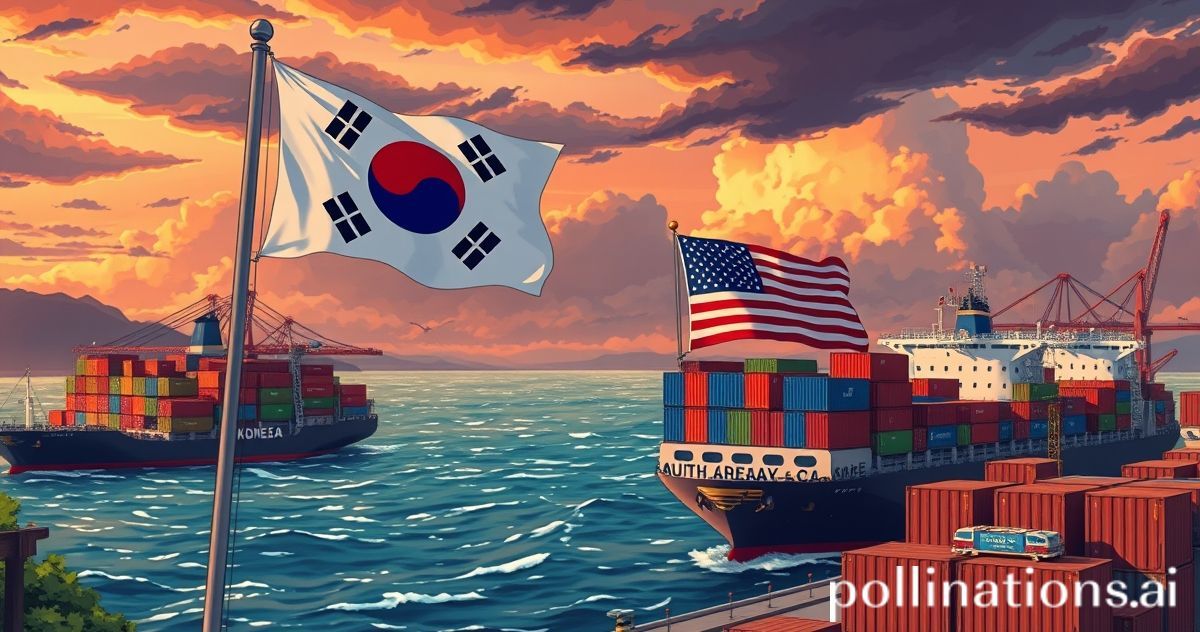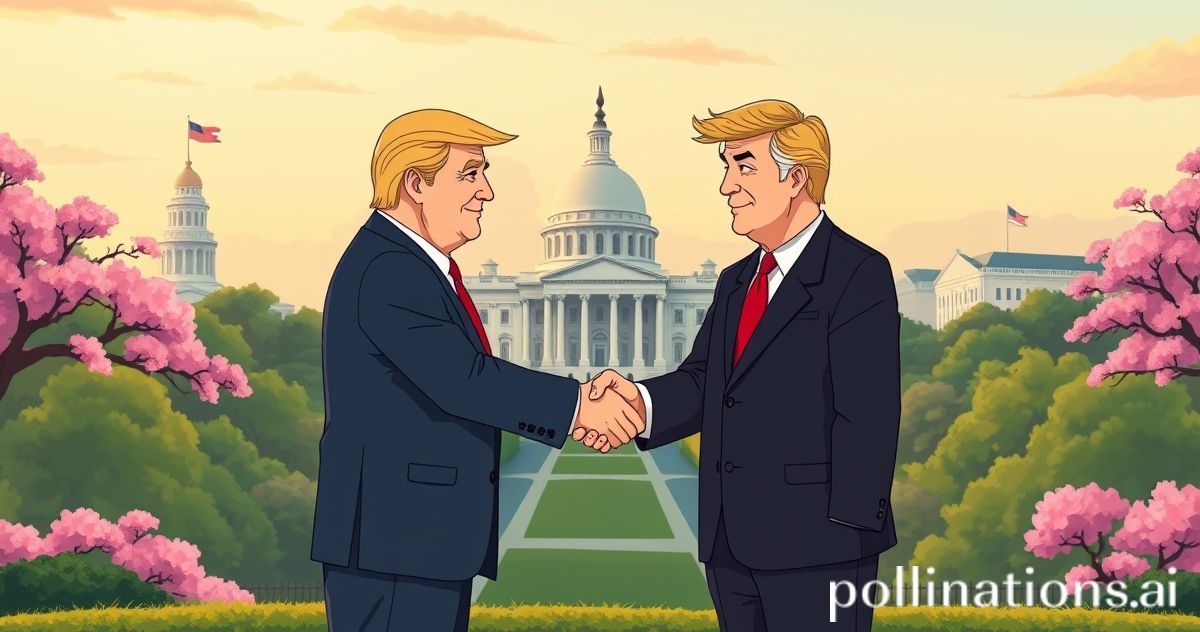
In July 2025, Donald Trump's announcement of a 25% reciprocal tariff on South Korean goods has sent shockwaves through the Korean economy and global markets. This tariff is part of a massive trade war affecting 183 countries worldwide, representing one of the most significant trade policy shifts in recent history. Understanding the implications and response strategies is crucial for businesses, investors, and policymakers.
🔥 Understanding Trump's Reciprocal Tariffs
Reciprocal tariffs are Trump administration's response to what they perceive as "unfair trade advantages" taken by various countries in their trade relationships with the United States. The tariff rates are calculated based on the US trade deficit with each nation, reflecting Trump's core belief that trade deficits represent American losses.
💡 2025 Reciprocal Tariff Overview
| Country | Tariff Rate | Effective Date |
|---|---|---|
| South Korea | 25% | July 9, 12:01 AM EST |
| China | 54% | July 9, 12:01 AM EST |
| Japan | 24% | July 9, 12:01 AM EST |
| Taiwan | 32% | July 9, 12:01 AM EST |
| European Union | 20% | July 9, 12:01 AM EST |
| United Kingdom | 10% | July 9, 12:01 AM EST |
🎯 Key Exception: Products already subject to existing tariffs (steel, automobiles, semiconductors, pharmaceuticals) are exempt from these reciprocal tariffs.

📊 Impact on Korea's Economy
🎯 Directly Affected Industries
- Electronics (smartphones, consumer appliances)
- Chemicals (petrochemicals, specialty chemicals)
- Machinery (construction equipment, industrial machines)
- Textiles & Apparel (fashion, sportswear)
- Food Products (Korean food exports, K-food trends)
📈 Economic Impact Projections
| Sector | Short-term Impact | Long-term Implications |
|---|---|---|
| Exports | 10-15% decline | Market diversification required |
| Currency | Won depreciation acceleration | Potential breach of 1,400 KRW/USD |
| Stock Market | Export company stock decline | Capital rotation to domestic firms |
| Consumer Prices | Import price increases | Inflationary pressure buildup |
🌏 Cultural and Economic Context
For international observers, it's important to understand that Korea's economy is heavily export-dependent, with the US being one of its largest trading partners. This tariff particularly impacts Korea's signature export industries that have driven its economic miracle since the 1960s.
The timing is especially significant as it coincides with Korea's push to establish itself as a global technology leader, particularly in semiconductors, electric vehicles, and renewable energy technologies.

🤝 Korea's Government Response Strategy
⚡ Emergency Response Team
The Korean government has deployed its top trade and security officials to Washington, including National Security Advisor Wi Sung-lac and Trade Minister Yeo Han-koo, in what officials are calling "all-court pressing" negotiations.
🎯 Negotiation Priorities
- Tariff Grace Period Extension
- Rate Adjustment Negotiations
- Korea-US Summit Rescheduling
- G7/NATO Summit Leverage
📈 Economic Support Measures
- Enhanced Financial Support for export companies
- New Market Development assistance programs
- Domestic Market Activation policies
- Currency Stabilization measures under review
💡 Global Implications and Lessons
Trump's 2025 trade war represents a fundamental shift in global trade relationships, moving away from multilateral trade agreements toward bilateral, transactional relationships based on trade balance calculations.
🌍 International Response Patterns
- Asian Allies: Coordinated diplomatic response through ASEAN and bilateral channels
- European Partners: Considering WTO dispute resolution mechanisms
- Emerging Markets: Accelerating regional trade agreement negotiations
📊 Economic Realignment Trends
- Supply Chain Regionalization: Companies moving production closer to final markets
- Trade Route Diversification: Increased South-South trade relationships
- Technology Decoupling: Accelerated development of alternative technology ecosystems

🚀 Strategic Opportunities Amid Crisis
While the immediate impact appears negative, this trade war could catalyze significant positive changes in Korea's economic structure, similar to how previous crises led to economic reforms and innovation.
🎯 Emerging Business Opportunities
- Southeast Asian Expansion: Vietnam, Indonesia, and Philippines markets
- European Market Penetration: Germany, France, and Nordic countries
- Middle Eastern Partnerships: UAE, Saudi Arabia infrastructure projects
- African Market Entry: Nigeria, Kenya, and South Africa opportunities
💼 Innovation Acceleration
- Technology Independence: Reduced reliance on US technology ecosystems
- Green Energy Focus: Accelerated renewable energy and EV development
- Digital Transformation: Enhanced focus on Korean digital platforms and services
- Biotech Advancement: Increased investment in pharmaceutical and biotech industries
📊 Investment and Business Strategy Adjustments
🏢 Corporate Response Strategies
- Geographic Diversification: Reducing US market dependence
- Supply Chain Restructuring: Moving production to tariff-exempt locations
- Product Innovation: Developing unique value propositions for non-US markets
- Strategic Partnerships: Forming alliances with non-US companies
💰 Investment Implications
- Domestic Focused Companies: Telecommunications, utilities, and retail sectors may benefit
- Alternative Market Players: Companies with strong European or Asian presence
- Currency Hedge Funds: Won depreciation plays and dollar hedging strategies
- Infrastructure Investment: Domestic infrastructure projects may see increased funding
🎯 Lessons for Global Trade Policy
Korea's experience with Trump's reciprocal tariffs offers important lessons for other countries navigating the new era of trade relationships:
🌟 Key Takeaways
- Diversification is Critical: Over-reliance on any single market creates vulnerability
- Diplomatic Agility Matters: Quick, high-level diplomatic responses can influence outcomes
- Economic Resilience Building: Strong domestic markets provide stability during trade disruptions
- Innovation as Defense: Technological advancement reduces dependence on traditional trade patterns
🎯 Conclusion: Navigating the New Trade Reality
Trump's 25% reciprocal tariff on Korea marks a decisive moment in 21st-century trade relations. While the immediate challenges are significant, Korea's historical ability to transform crises into opportunities suggests that this trade war could ultimately strengthen the country's economic resilience and global competitiveness.
The key to success lies in rapid adaptation, strategic diversification, and continued innovation. Countries and companies that can quickly pivot to new markets and develop unique value propositions will emerge stronger from this trade realignment.
For global observers, Korea's response to these tariffs will serve as a crucial case study in how middle-power economies can navigate great power trade conflicts while maintaining growth and prosperity.
Original Korean Article: https://trendy.storydot.kr/blog/trump-trade-war-korea-response-2025


0 Comments